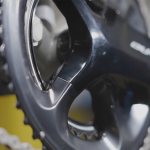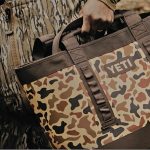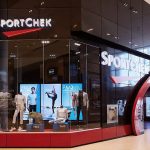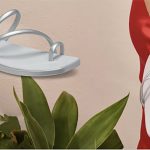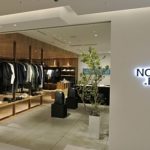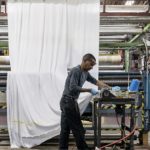Marcato Capital Management, in its proxy statement seeking to replace all 10 Deckers Outdoors’ directors with its own squad, detailed an extensive plan to reimagine Deckers, including the sale of non-core Ugg brands, a rash of store closings, additional cost-reduction initiatives and aggressive stock buybacks.
Overall, Marcato believes Deckers’ stock price has the chance to more than double over a three-year horizon with the steps it offered to improve EBITDA.
In June, Marcato Capital, which owns approximately 6 percent of Deckers’ shares, said that if an ongoing review by Deckers’ strategic review process did not culminate in a sale of the company, Marcato would nominate a slate of director candidates to replace the entire Board. On September 13, Marcato’s 10 candidates were nominated. The annual meeting will take place on December 14, 2017.
In its proxy statement to support the nominations filed with the Securities & Exchange Commission, Marcato said Deckers’ focus should be on Ugg, which it called “a substantial footwear brand that generates strong cash flows, returns and is underpenetrated internationally.”
Marcato’s filing noted that Ugg’s sales have been steadily rising since 2005 before a dip in its fiscal 2017 year. The brand’s volume of $1.45 billion leads the casual space with only Clarks, at $1.41 billion; and Timberland, $1.4 billion, close in size.
At the same time, Deckers has “a poor history of investing capital in non-Ugg brands,” Marcato contends. The filing notes that Deckers last year wrote down the asset value of Sanuk, which it acquired for $149.8 million in 2011, by over 60 percent. Other divested past acquisitions include Ahnu and TSUBO.
In sum, Marcato sees the potential to net $464 million from the sales of Teva, Sanuk and Hoka One One.
Hoka One One is a “rapidly growing running shoe brand whose value is not recognized by the market” while both Teva and Sanuk are facing “low growth.” Hoka would net $281 million in a sale with a transaction valued at two times its sales of $140 million, estimates Marcato. Teva would net $89 million with its valuation calculated at six times EBITDA of $15 million. Sanuk was projected to sell for $94 million with the valuation calculated at six times EBITDA of $16 million.
Beyond the focus on Ugg, Marcato said Deckers’ shares and operational performance have been hurt by a “failed brick & mortar expansion and unchecked expense growth.”
Marcato noted that growth in the company’s store network, which is primarily Ugg, has come at the expense of margins, and would greatly benefit from store closures. Deckers’ store base has grown to 160 stores at the end of fiscal 2017 from 45 at the close of fiscal 2011, while its gross margins over the same period slid to 17 percent during fiscal 2017 from 26 percent in fiscal 2012. The store openings have also caused SG&A and unallocated overhead to expand faster than revenue.
Marcato also asserts that e-commerce and retail segments were combined in fiscal 2016 to a segment called Direct-To-Consumer (DTC) to hide retail weakness. Marcato wrote, “A modest decline in e-commerce margins would imply a single digit margin for retail in fiscal 2016 and fiscal 2017.”
Retail profitability would also be significantly lower after allocating overhead. Indeed, Marcato said that after allocating corporate expenses, the average profitability level at retail would need to more than double to improve the retail segment’s margins above Deckers’ cost of capital
On optimizing profitability, Marcato noted that Deckers has already announced a program to drive $150 million in cost savings to support a $100 million improvement in operating profitability by fiscal year 2020 versus fiscal 2017. But Marcato said a consultant who has worked with leading footwear and apparel companies, including Nike, Adidas, Timberland and Wolverine Worldwide, has identified $150 million to $200 million in savings potential at Deckers. Of the potential savings, $40 million to $50 million would come from rationalizing its retail network, $50 million to 70 million from reductions in SG&A, $50 million to $70 million from reducing cost of goods sold and $10 million from other opportunities.
The investment group offered Wolverine Worldwide’s effort to close doors, rationalize in portfolio and improve operations as an example of a similar path to success.
In sum, under Marcato’s program, ROIC is expected to improve to 32 percent by fiscal 2021 from 17 percent in fiscal 2017 for a gain of 82 percent. EBIT margin is projected to increase to 19 percent over the same period from 9 percent, a hike of 108 percent.
The plan calls for the aggressive repurchase of shares utilizing leverage, cash on hand and proceeds from divestures and bring down shares outstanding by 53 percent to 15 million by fiscal 2021 from 32 million in fiscal 2017. That would help lift EPS to $12.68 from $3.82, a gain of 232 percent.
In announcing its nomination for the board on September 13, Mick McGuire, managing partner of Marcato, said: “Deckers has enjoyed a strong, profitable brand with Ugg for many years, yet has failed to translate this enviable position into growth in earnings and shareholder value. Given the company’s significant underperformance compared to peers, coupled with the Board’s failure to take the necessary corrective strategic action, we believe change is required. On numerous occasions we have sought to engage constructively with the Board to add new directors and develop a strategy focused on profitable growth while improving margins and returns on invested capital. Unfortunately, our efforts to work collaboratively to enhance shareholder value have been met with significant resistance.”
In response to the nominations, Deckers issued a statement on September 13 indicating its Board of Directors would carefully review and consider Marcato’s candidates as it would any other potential directors to assess their ability to add value on the Board for the benefit of all stockholders.
The statement read, “Deckers welcomes open communications with its stockholders and values constructive input toward the shared goal of enhancing stockholder value. Although we engage regularly with our stockholders, it is Deckers’ policy not to comment on discussions with individual stockholders. However, it is important to note that members of the Board and senior management team have held a number of discussions with Marcato during the past 8 months and those discussions remain ongoing. Deckers has a strong and independent Board, with 3 new directors who have joined since 2014. The Board believes that it has an appropriate mix of skills, experience and leadership to drive performance and provide effective oversight. At the same time, the Board will give full and fair consideration to the nominees proposed by Marcato.
“As previously announced on April 25, 2017, the Board is reviewing a broad range of strategic alternatives to enhance stockholder value. The Board has retained Moelis & Company LLC as its financial advisor and Wilson Sonsini Goodrich & Rosati, Professional Corporation as its legal counsel in connection with the review process. While the Board conducts its review, the entire Deckers team remains committed to improving operations and profitability.
“As previously announced, Deckers is executing on a focused strategy to drive improvements in the business through streamlining its cost structure. Deckers continues to aggressively move forward with its $100 million operating profit improvement plan: in fiscal year 2018, Deckers expects to achieve net savings in excess of $30 million, and is targeting a similar cadence of savings each year through fiscal year 2020. To achieve this, Deckers is taking a number of actions to improve its gross profit margins, as well as its corporate overhead expense structure.”
Deckers has filed a proxy statement with the SEC to supports its own list of candidates for the board. They include Karyn O. Barsa, Nelson C. Chan, Michael F. Devine, III, John M. Gibbons, Angel R. Martinez, John G. Perenchio, David Powers, James Quinn, Lauri M. Shanahan and Bonita C. Stewart, all of whom are members of the Company’s Board of Directors, and Thomas A. George, Chief Financial Officer, and Steve Fasching, Vice President, Strategy & Investor Relations.
The proxy fight comes as Deckers on July 28 reported first-quarter earnings and sales that came in well above targets, benefiting from earlier-than-expected shipments and strong reorders for both its Ugg and Hoka One One brands.
Sales in the quarter ended June 30 jumped 20.3 percent to $209.7 million while the company had forecast sales to be up low single digits.
On a conference call with analysts, Dave Powers, president and CEO, said the sales beat was driven in part because the company shipped approximately $20 million of wholesale orders earlier than expected to optimize marketplace opportunities. Second, stronger-than-expected global reorders were seen for Ugg, Hoka and Teva spring product due to healthy consumer demand for key items. Third, double-digit e-commerce growth led to a 12.7 percent increase in DTC comparable sales.
The combination of higher sales and a decline in SG&A expenses of $7.9 million, driven by its cost savings plan, resulted in a non-GAAP loss per share of $1.28, a significant improvement over the loss of $1.80 same quarter last year. The net results were also well above its guidance calling for a loss between $1.70 and $1.65.
Powers noted that that the performance builds on positive momentum seen in the fourth quarter and reflects the early payback from steps taken over the last twelve months since he took over as CEO to create “a more nimble, efficient and profitable company.”
The steps include the formulation of its $100 million operating profit improvement plan; implementation of marketplace transformation with a focus on elevating the consumer experience; Ugg’s progress in diversifying its spring and summer line-up; enhancing its omni-channel capabilities; and launching new products and categories, including the Ugg Classic II and new Hoka styles. Said Powers, “Our results are beginning to show the progress we are making.”
In a note that came out October 5, Stifel analyst Jim Duffy said channel checks with U.S. online off-price channels show Ugg off-price inventory is in a better position year over year entering the key selling season.
“This is consistent with management objective to be more disciplined with clearance inventory and clean up lower-quality distribution,” wrote Duffy. “Cleaner inventory supports favorable supply/demand dynamics and potentially sets the stage for high margin in-season reorders. We view tighter distribution as emblematic of a stabilizing foundation. In combination with margin improvement potential, we see reason to be more optimistic on valuation and are raising the 12 month target to $80 reflecting 16.8X our FY19 EPS estimate of $4.75.”
Shares closed Tuesday at $71.60, up 62 cents a share. The stock is trading close to its 52-week high of $72.72 versus a 52-week low of $44.00.
Photo courtesy Ugg






